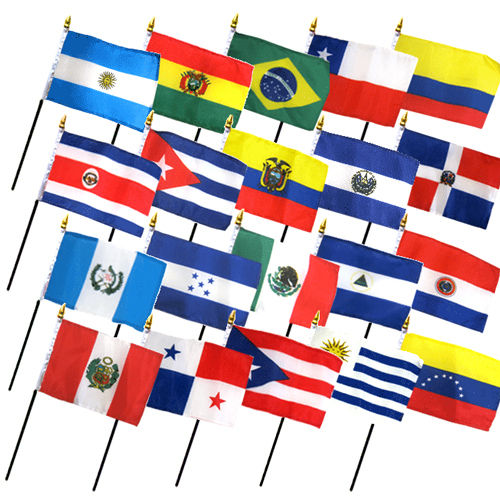SciPyLA: Scientific Python in Latin America
- Brandon Sodenkamp
- Feb 14, 2019
- 3 min read
Places like Silicon Valley have dominated the idea of a tech-oriented and programmer-rich environment, but new trends in remote offices have allowed for an unprecedented decentralization. This has provided an opportunity for many individuals to remain in their home countries and still participate in the ever-evolving world of programming. In 2013, a group of Python Data Science enthusiasts recognized this dispersion trend and took the opportunity to develop a way to bring people back together: SciPy Latin America.
SciPy Latin America is headed by advisories including Celia Cintas, Nahuel Defosse, Juan Bautista Cabral, Damián Ávila, Raniere Silva, Olemis Lang, Ramiro Luz, Gonzalo Peña-Castellanos, Carlos Córdoba, Melissa Weber Mendonça, Filipe Pires Alvarenga Fernandes, and Quansight’s own Ivan Ogasawara. Further ambassadors to this program are Arthur Alvim, Ariel Silvio Norberto Ramos, Caroline Dantas, Francisco Palm, Noemi Nahomy, David Ochoa, Sebastian Moscoso. The first ever SciPyLA event was in 2013. It was organized by a group of professors from the Universidad Nacional de la Patagonia San Juan Bosco and other members of the Python community. While today the organization is international, initially, it was held at the national level as SciPy Argentina. Enthought helped the new conference by sponsoring the travel of the keynote speaker Prabhu Ramachandran, and the general sponsors were local and national companies from Argentina such as universities and research centers. With the sponsorship funding, they were able to provide several grants for travel and accommodations. In addition to the travel assistance, they determined that the conference should be free to everyone. The event ended up being a massive success, with an attendance of over 200 people. You can find out more about the first event here.

The mission of SciPyLA is to promote science, encourage the adoption of information technology as a tool for scientific study and also encourage the use of Python (but not exclusively) as the main computing tool in science. The SciPyLA conferences are a great opportunity to bring Python programmers together who would otherwise never meet. In this region, there are several people using Python for scientific research and frequently people do not know each other or have little contact with each other. SciPyLA facilitates the exchange of experiences and knowledge.
Latin America is a large territory, and political instabilities within the region can sometimes complicate travel. To add to the complications, the venue opportunities are relatively few and it can be difficult to get organizers to commit themselves. In spite of these difficulties, many scientists who work with Python join together each year as members of a community not bound by the borders of their home countries. This has been vital to the community and has enabled it to continue growing. Organizing these groups and events may not have been an easy process, but it has been very rewarding. One of the most rewarding experiences that the conference chairs see is the appreciation of those who receive travel assistance that would never have been able to attend otherwise. The effort of putting on SciPyLA is worth it because of all the participants, who repeatedly express their appreciation for the work and unity that this organization brings to Latin America.

In the future, SciPyLA will continue to expand the opportunities for attendance to a larger group by increasing promotional efforts and possibly also holding online meetings. The inclusion of more disciplines has also been a topic of discussion, and could potentially include such subjects as history, economics, psychology, and other fields with data science applications. In addition to these efforts, it will also be necessary to have assistance from community members to ensure the continued success of this organization. Even if you are not in Latin America, there are many ways to help out such as website translation, sharing and posting on social media, web design, and content creation. Anyone from anywhere is welcome to attend the conference in person and to get in contact with the SciPyLA team you can reach out via Telegram, Google Groups, or Twitter. To keep up to date on the latest details for the next conference, check out the SciPyLA website.






Comments